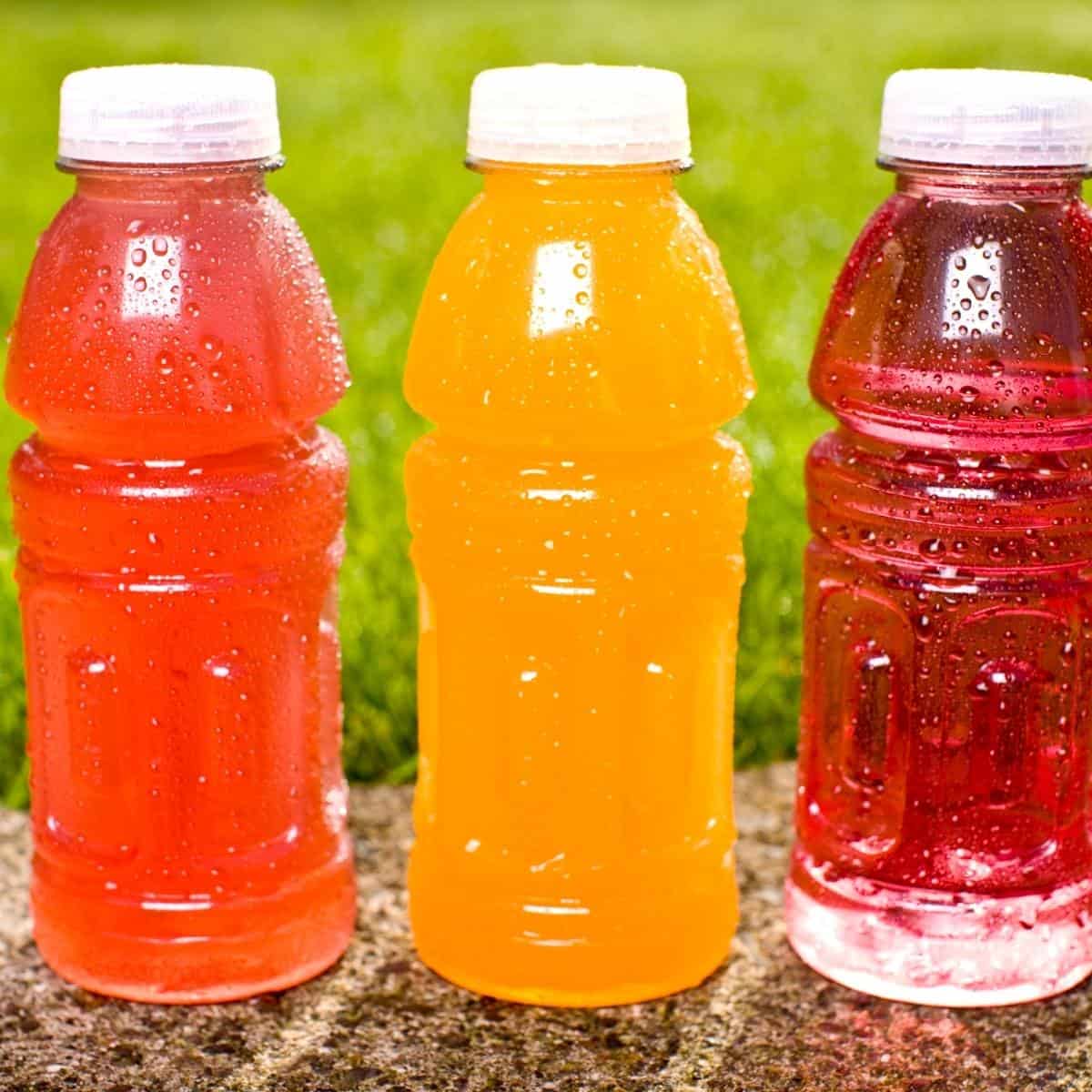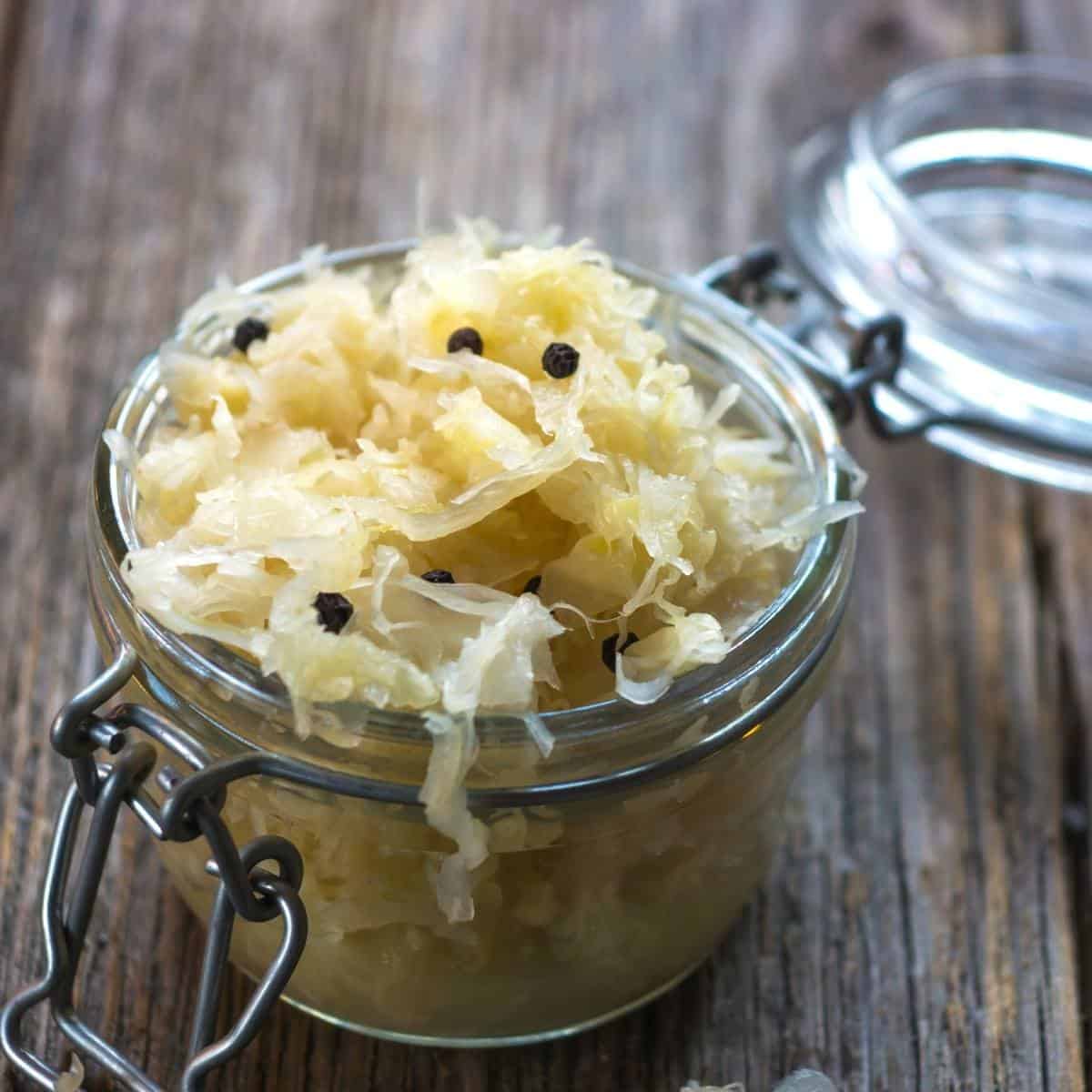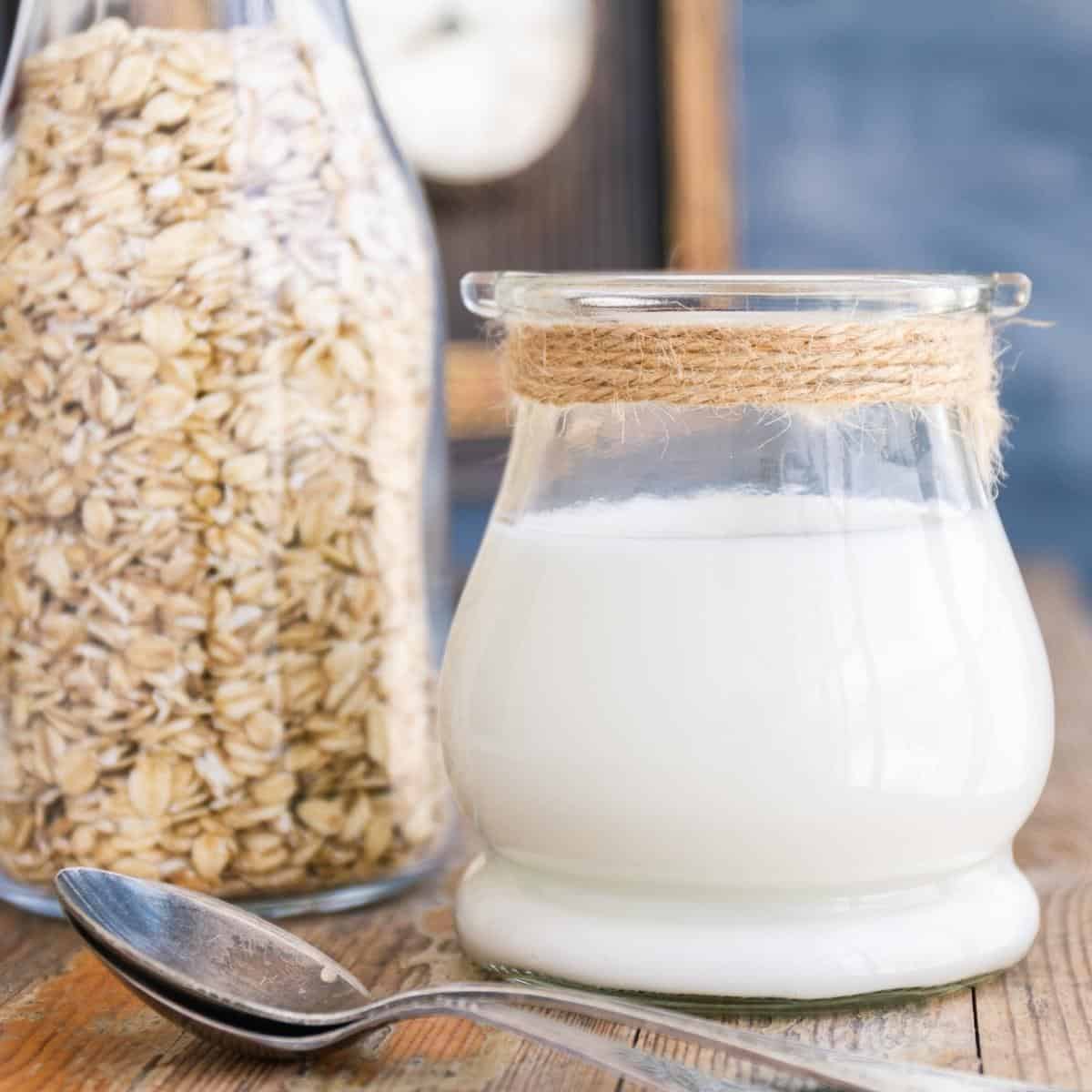Can Dogs Have Papaya?
Wondering if papaya is safe for your dog? We say yes, but be sure to read about the serving size, what dogs shouldn’t eat papaya, and all of the health benefits they can gain from just a single serving.
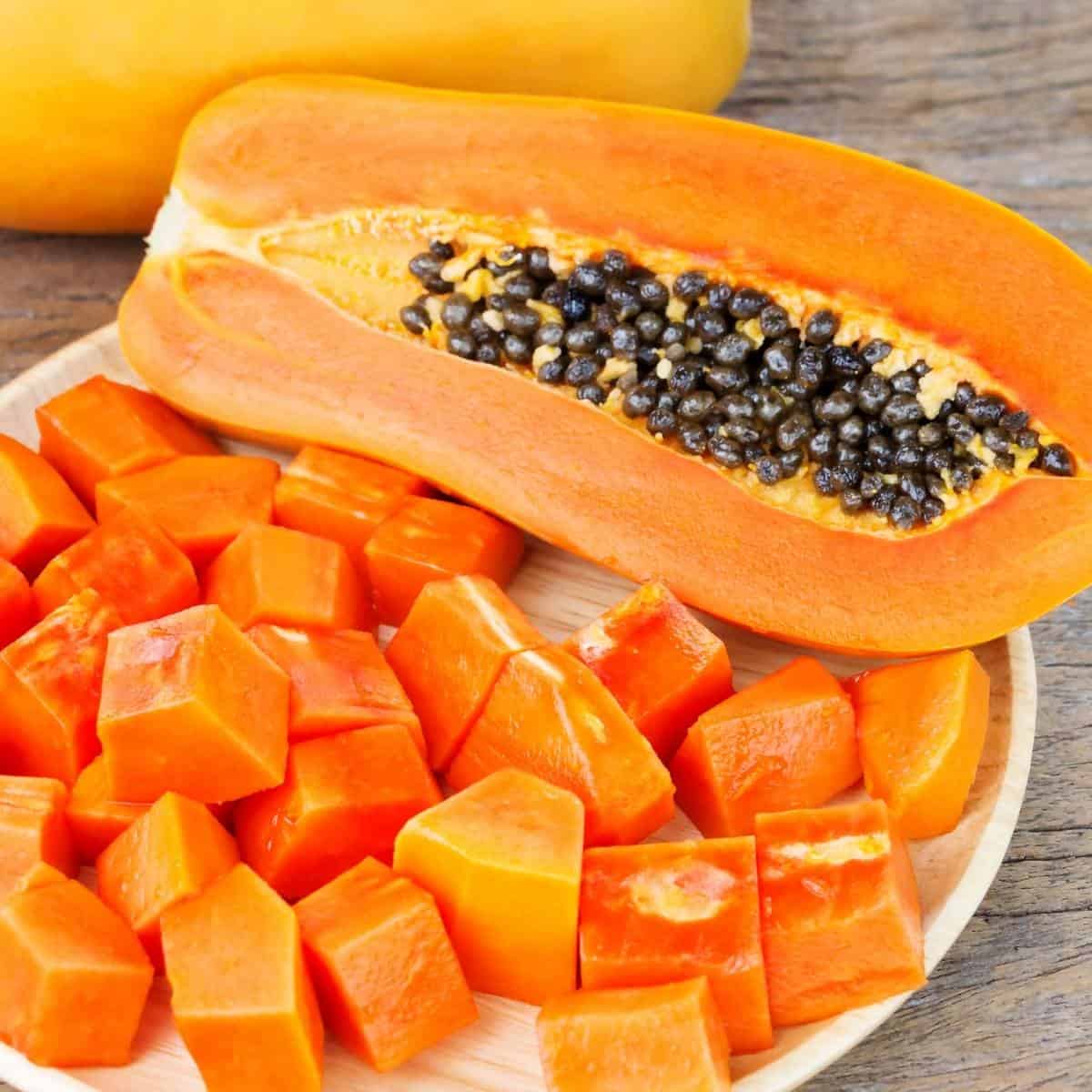
Is Papaya Good for Dogs?
Yes. Papaya is rich in healthy enzymes and fibers, which improve the digestive health of dogs. They contain vitamins A, C, E, and K, as well as potassium, calcium, and folate, which aid the heart and immune system health. Keep reading about all of the benefits papayas has to offer!
Health Benefits of Papaya
Papaya can be very helpful in boosting a dog’s health. As mentioned earlier, Papaya contains nutrients such as vitamins A, C, E, and K. It also is a star of the show because of its phytonutrient profile and unique digestive support properties that are not likely to be found in most homemade and store-bought dog foods.
Here are some of the nutrients that can be found in papaya, along with what they do for your dog.
Vitamin A
On average, most dogs intake what they need of Vitamin A through their normal diet. However, papaya offers beta-carotene as well. This is what gives yellow and orange fruits and vegetables their vivid color and is a powerful antioxidant. While all of this sounds good, you don’t want to overdo it, because then it can lead to oxidative stress (which is rare).
Vitamin C
Papaya has 20 more milligrams of vitamin C for every 1 cup serving. Not only does it act as an antioxidant and protect against free radical damage, but it also boosts their overall immune system. Dogs can actually make their own vitamin C, but whole foods help to increase. There may be some conditions or cases where vets will recommend a supplement.
Vitamin K
Vitamin K is particularly important for blood clotting is also considered fat-soluble, and is great for overall blood and liver health.
Potassium
Potassium helps to absorb nutrients, boosts bone health, aids in neural functions, and promotes good muscle growth and strength.
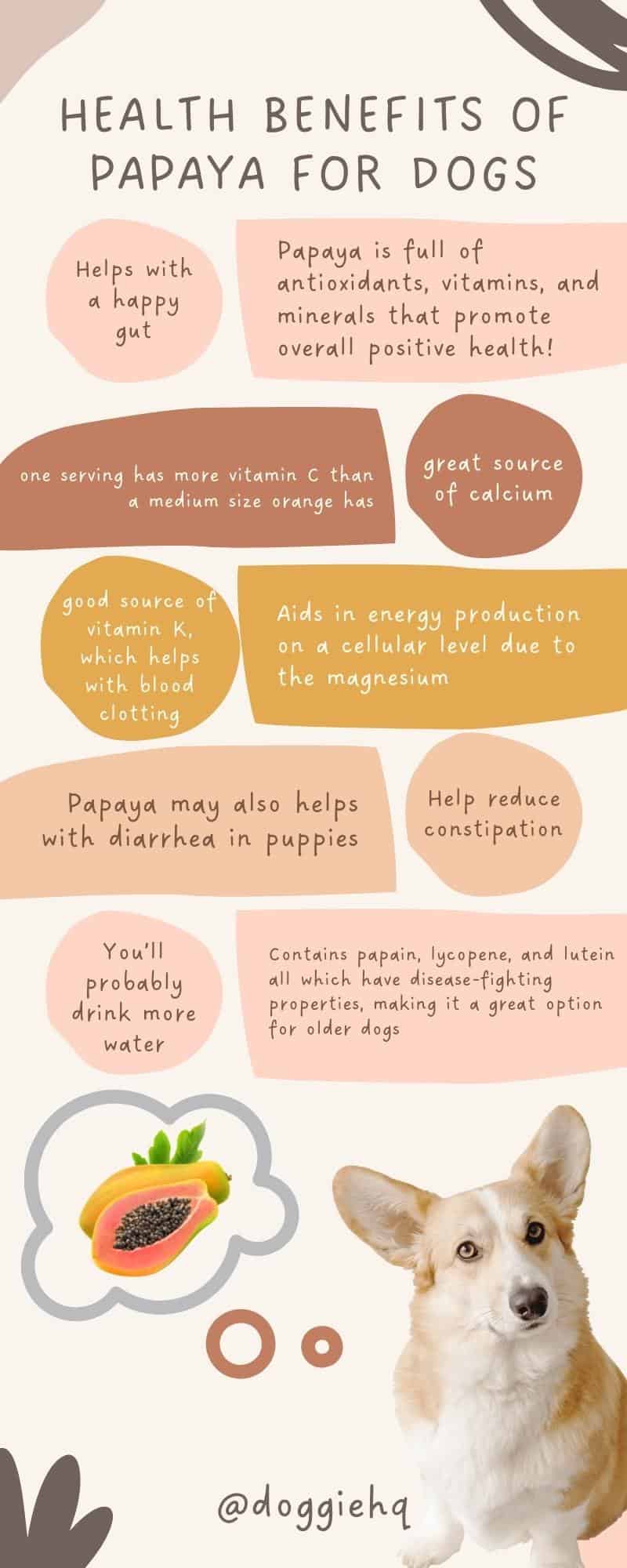
Calcium
Calcium supports a healthy nervous system and a strong heart, in addition to proper growth, muscle building, and functioning.
Magnesium
Papaya is a good source of magnesium, which is used on the cellular level to help with energy production. It helps with your canine friend’s heart health, muscle function, and electric signals of the nervous system. If your dog has medical conditions such as diabetes or kidney issues, vets may recommend upping their magnesium intake.
Fiber
Papaya is a great source of fiber that helps dogs to avoid constipation and have normal bowel movements. Many fiber sources help support various good bacteria that live in a dog’s gut, just like in humans. Papaya should be given in moderation, especially if your dog is more sensitive to fiber. It’s funny because fiber can aid with diarrhea and constipation, which can be helpful when they are puppies.
Papain
Papain is one of the digestive enzymes (a protein) that helps to break down food. If you are looking to increase their papain source, feed them raw papaya (versus cooked). This enzyme is sensitive to heat. Meaning when it’s exposed to heat, the benefits are gone. Store-bought dog foods such as kibble are made with high heat; therefore, it is unlikely that your dog will benefit from any heat-sensitive enzyme, including papain.
While there are papain supplements on the market, most will recommend just incorporating it into their diet gradually.
This is particularly helpful for dogs who are older and whose digestive health is declining or for those who always have stomach issues in general.
Lutein
Like lycopene, lutein is a carotenoid and is known for its role in preventing the progression of macular degeneration. There’s ongoing research to determine lutein’s role in preventing the excessive decline in cognitive abilities resulting from old age. There’s also other research being conducted regarding the role of lutein in cancer and Parkinson’s disease prevention.
Lycopene
This chemical compound is produced by plants and is classified as a carotenoid. A carotenoid is a pigment from plants that acts as an antioxidant. However, lycopene does not turn into Vitamin A in a dog’s digestive system. But it still functions as an antioxidant that can be of benefit to the brain, heart, lungs, and eyes of the dog.

How Much Papaya Can You Give Your Dog?
Ensure to share small amounts (one cup or less) of papaya with your dog occasionally. Fruits aren’t a natural part of a dog’s diet. Too much of the fruit’s fiber or sugar will cause an upset stomach. Do not share papaya or any other fruit with your dog if he has diabetes (or before asking a veterinarian).
Papaya is one of the fruits that are lower in sugar, especially compared to bananas. That being said, the serving size should be less if you give your dog other fruits on a daily basis.
Be sure to cut the papaya up in small enough pieces for them to chew to avoid choking.
Is Papaya Good For Constipation In Dogs?
Fruits like papaya and oranges are a natural way of easing constipation in dogs. Both contain a large amount of water and fiber, which speed up the intestinal flow and make stool formation easier.
Can Dogs Eat Papaya Seeds And Peel (Skin)?
Do not feed pups papaya seeds because they contain small amounts of toxic cyanide, which can harm your dog.
Also, dogs should not eat the peels (the outer skin) of papaya because, just like humans, it’s hard for them to digest. It will not only cause terrible stomach issues but could also choke your dog.
Are Papayas Good For Dogs With Kidney Disease?
Papaya is recommended for dogs with liver and kidney diseases because of its antioxidant properties. Generally, it’s okay as long as your dog doesn’t have an allergy. Ensure to consult your vet before feeding them papaya just to be on the safe side.

Can You Give Papaya To Puppies?
Sure can! You can give papaya slices to your pup as long as it’s in moderation. As mentioned earlier, feeding him papaya is okay as long as your pup doesn’t have an allergy.
What About Dehydrated Papaya Or Papaya Chips?
Dogs can have dehydrated papaya and papaya chips, but we wouldn’t recommend nearly the serving as we would if it was raw. Also, if your dog has diabetes you would not want to feed it dehydrated fruit.
Pups may end up with gastrointestinal issues because of the higher sugar content.
When fruits are dehydrated, all of the water is drawn out, which leaves smaller pieces with higher sugar content. Therefore if you kept the same serving size as before, your dog would actually be eating more in volume and more sugar.
Always go with raw fruit first, and consider dehydrated fruit chips almost like a dessert or special treat.
Papaya for Dogs: The Short Version
- In summary, Papaya is rich in healthy enzymes and fibers, which improve the digestive health of dogs. They contain vitamins A, C, E, and K, as well as antioxidants, and other minerals.
- Fruits aren’t considered a natural part of a canine’s diet. Too much fiber or sugar will cause digestive upset to dogs and puppies. Therefore, it would be best to feed them papaya in small amounts.
- Papaya is good for constipation (and diarrhea in puppies) in dogs because it contains a large amount of water and fiber, which aids in digestion.
- Seeds and peels are not good for dogs and should not be given to them.
- Lastly, dehydrated papaya or papaya chips can be fed to dogs in small quantities, but they might not agree with some dogs and may result in gastrointestinal problems due to high sugar content.
- Avoid fruit in general if you dog has diabetes, or at least consult with your vet first before giving it to them.

